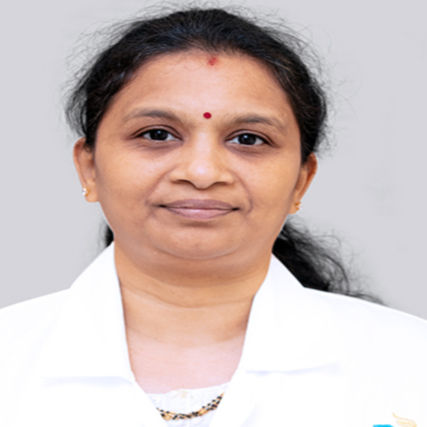Guide to Role of Fathers In Ensuring Safe Motherhood
Explore how fathers can actively support safe motherhood and contribute to the health and well-being of both mother and baby

Written by Dr. J T Hema Pratima
Reviewed by Dr. Rohinipriyanka Pondugula MBBS
Last updated on 13th Jan, 2026

Introduction
Pregnancy and childbirth are often portrayed as a mother's journey, but the role of the father is a cornerstone of safe motherhood. Moving beyond the stereotype of a nervous bystander, today's father is an active, engaged partner whose involvement has a scientifically-proven impact on the health and well-being of both mother and baby. This guide redefines the role of fathers as proactive advocates, emotional anchors, and clinical partners in the mission to ensure a safe and positive pregnancy and postpartum experience. We will explore how your involvement from preconception through the "fourth trimester" can reduce maternal stress, improve health outcomes, and foster a stronger family bond. Whether you're an expectant dad or planning for the future, this article provides a detailed roadmap for stepping into this essential role with confidence and purpose.
Beyond the Bystander: Redefining the Modern Father's Role
Gone are the days when a father's job was limited to pacing in the waiting room. Contemporary understanding of safe motherhood recognises that a father's influence is direct and profound. Research indicates that supportive partners can lead to better prenatal care attendance, healthier maternal behaviors (like improved nutrition and reduced smoking), and lower rates of postpartum depression.
From Passive Supporter to Active Partner
Being an active partner means shifting from asking "What can I do?" to saying "This is what we are doing." It involves shared decision-making, from choosing a healthcare provider to creating a birth plan. This proactive approach alleviates the immense mental load carried by the mother, allowing her to focus on her physical health and emotional connection with the baby. Your active participation signals that she is not alone, creating a secure environment that is crucial for a safe pregnancy.
The Direct Impact of Paternal Involvement on Maternal Health Outcomes
Studies have shown a correlation between strong partner support and reduced risk of preterm birth and low birth weight. When a father is engaged, the mother is more likely to manage pregnancy-induced conditions like gestational diabetes or hypertension effectively because she has a teammate reminding her of appointments, encouraging a healthy diet, and noting concerning symptoms. This paternal support transforms the pregnancy from a solitary challenge into a shared, manageable journey.
Health topic carousel:
Doctor's speciality: Obstetrics and Gynaecology
Text: Consult an Obstetrician and Gynaecologist for the best advice
The Preconception Phase: Laying the Foundation for a Healthy Pregnancy
A safe motherhood journey begins even before conception. This is where fathers can make a significant impact by participating in pre-pregnancy health planning.
Joint Health Assessments and Lifestyle Changes
A visit to the doctor for a preconception health check-up is not just for the mother. Fathers-to-be can get a general health screening, discuss genetic histories, and ensure their vaccinations are up to date. This is also the ideal time for both partners to adopt healthier lifestyles. Quitting smoking, reducing alcohol intake, and maintaining a balanced diet are more successful when done as a team. For instance, if the mother is taking folic acid, the father can focus on nutrients like zinc and selenium, which are linked to sperm health. If you have underlying health conditions, consulting a doctor online with Apollo24|7 can be a convenient first step.
Emotional and Financial Preparation Together
The decision to have a child is as much emotional as it is physical. Open conversations about fears, expectations, and parenting philosophies are vital. Furthermore, preparing for fatherhood includes practical financial planning. Discussing budgets, insurance, and parental leave policies together reduces stress and ensures you are both on the same page before the pregnancy begins.
A Partner Through Pregnancy: The Three Trimesters
Each trimester brings unique challenges and joys. Your adaptable support is key.
First Trimester: Navigating Morning Sickness and Anxiety
The first trimester is often characterised by fatigue and nausea. Your role here is practical and empathetic. Take over household chores, prepare bland snacks she can tolerate, and be patient with her changing energy levels. Emotionally, this can be an anxious time. Reassure her, listen to her concerns, and celebrate milestones like the first ultrasound together.
Second Trimester: Attending Appointments and Bonding with the Bump
As energy often returns, this is a great time to deepen your connection. Make it a priority to attend prenatal appointments. Hearing the baby's heartbeat and seeing the ultrasound makes the pregnancy more real and allows you to ask questions directly to the healthcare provider. At home, talk and sing to the baby bump; this helps the baby recognise your voice after birth.
Third Trimester: Preparing for Labor and Delivery
The physical discomfort increases. Your support can include helping with prenatal exercises, giving back massages, and assembling the baby's gear. Most importantly, educate yourselves together. Attend childbirth classes, read about labor signs, and finalise your birth plan. Knowing what to expect will make you a more effective birth partner when the time comes.
The Birth Partner: Your Crucial Role in Labor and Delivery
During labor, you are her primary advocate and comforter.
Advocate and Communicator in the Delivery Room
You are the constant presence in a room that may see shifting medical staff. You know her birth preferences and can communicate them calmly if she is unable to. You can ask questions on her behalf, ensuring she has all the information needed to make decisions. This advocacy is a critical component of ensuring she feels safe and respected during delivery.
Providing Physical and Emotional Comfort During Labor
Your physical presence holding her hand, applying counter-pressure to her back during contractions, offering ice chips is invaluable. Your calm demeanor and words of encouragement can significantly influence her pain perception and anxiety levels. You are her anchor in the storm of labor.
The Fourth Trimester: Supporting Mother and Baby Postpartum
The first three months after birth, known as the fourth trimester, are a period of immense physical and emotional recovery for the mother.
Understanding and Supporting Maternal Mental Health
Hormonal changes, sleep deprivation, and the new demands of motherhood can take a toll. Be vigilant. Your role is to create a buffer against the world. Handle visitors, manage phone calls, and ensure she has time to rest. Most importantly, be the first line of defense in spotting postpartum mood disorders.
Recognising Signs of Postpartum Depression and Anxiety: Look for signs beyond "baby blues," such as prolonged sadness, excessive crying, withdrawal from the baby, or intense anxiety. If you notice these symptoms persisting for more than two weeks, it is crucial to seek help. Gently encourage her to speak with a healthcare professional. Apollo24|7 offers discreet online consultations with specialists who can provide guidance and support.
Sharing the Load: Night Feeds, Chores, and Infant Care
Safe motherhood extends to the postpartum period. You can ensure her physical recovery by taking on a large share of household duties and infant care. If she is breastfeeding, you can bring the baby to her for night feeds and handle the diapering afterward. If bottle-feeding, you can share feeds equally. This practical support is not "helping her"; it's parenting your child and caring for your partner.
The Father's Well-being: Taking Care of Yourself to Care for Others
You cannot pour from an empty cup. The stress of new fatherhood is real. It's essential to manage your own mental and physical health. Talk about your feelings with your partner, friends, or a counselor. Make time for short breaks, exercise, and proper nutrition. A healthy, supported father is better equipped to provide the unwavering support that defines his role in safe motherhood.
Conclusion
The journey to safe motherhood is a shared responsibility where the father's role is indispensable. By being an informed, empathetic, and proactive partner, you contribute significantly to reducing maternal stress, improving clinical outcomes, and building a foundation of shared parenting that will benefit your family for years to come. It’s about transforming the narrative from "I'm here to help" to "We are in this together." Embrace this role with confidence, knowing that your involvement is one of the most powerful factors in ensuring a positive and safe experience for the mother of your child. If at any point you or your partner have specific health concerns, do not hesitate to consult a specialist. Apollo24|7 provides easy access to expert care, from online consultations to, if needed, in-person visits, supporting your family's health every step of the way.
Frequently Asked Questions (FAQs)
Below are the FAQs:
1. What is the most important thing a father can do during pregnancy?
A. The single most important thing is to be consistently present and engaged both emotionally and practically. This means attending appointments, listening to your partner's needs, educating yourself about the process, and sharing the mental and physical load of preparing for the baby.
2. How can a father help a mother with postpartum depression?
A. Your support is vital. Take on more household and baby care duties to give her time to rest. Encourage her to talk about her feelings without judgment. Most importantly, help her seek professional help by reassuring her that it's okay and she is not alone. You can facilitate this by helping her book an appointment with a therapist or doctor.
3. Is it common for fathers to feel stressed during pregnancy?
A. Absolutely. It's very common. Fathers often experience stress related to financial pressures, the health of their partner and baby, and the impending life change. Acknowledging these feelings and finding healthy outlets, like talking to other expectant dads or a counselor, is important.
4. What should a father pack in the hospital bag?
A. Beyond the items for the mother and baby, pack essentials for yourself: a change of clothes, snacks, a phone charger, a book or headphones, and any important documents or birth plan copies. Being prepared will allow you to focus entirely on supporting your partner.
5. How can a father bond with the newborn if the mother is breastfeeding?
A. Bonding opportunities are plentiful! You can be responsible for burping the baby after feeds, diaper changes, baths, and skin-to-skin contact. You can also take the baby for walks, talk and sing to them, and be the one to soothe them to sleep, creating your own unique bond.
Health topic carousel:
Doctor's speciality: Obstetrics and Gynaecology
Text: Consult an Obstetrician and Gynaecologist for the best advice
Consult Top Specialists for Personalised Tips

Dr. Abhishek Daga
Obstetrician and Gynaecologist
20 Years • MBBS, MS (Obstetrics & Gynaecology)
Kolkata
Gynae Care Fertility Centre, Kolkata
(150+ Patients)

Dr. Harmeet Malhotra
Obstetrician and Gynaecologist
44 Years • MBBS, MD, DGO, FICOG
Delhi
Apollo Hospitals Indraprastha, Delhi
(25+ Patients)

Dr. Ashish Kale
Obstetrician and Gynaecologist
19 Years • MBBS, MD (OBG), DNB, MNAMS, Diploma in Endopelvic Surgery, Fellowship in Embryology, Fellowship in ART.
Pune
Apollo Hospitals Pune, Pune

Dr. Srikala Dodda Reddy
Obstetrician and Gynaecologist
10 Years • MBBS,DNB(Obstetrics and Gynaecology),FRM(Post doctoral fellowship in reproductive medicine)
Chennai
Apollo Women Hospitals Thousand Lights, Chennai
(50+ Patients)

Dr Padmavathi Narahari
Obstetrician and Gynaecologist
20 Years • MBBS,MS OG, Fellowship in Advanced Laproscopic Gynaecology
Chennai
Apollo First Med Hospitals P H Road, Chennai
Consult Top Specialists

Dr. Abhishek Daga
Obstetrician and Gynaecologist
20 Years • MBBS, MS (Obstetrics & Gynaecology)
Kolkata
Gynae Care Fertility Centre, Kolkata
(150+ Patients)

Dr. Harmeet Malhotra
Obstetrician and Gynaecologist
44 Years • MBBS, MD, DGO, FICOG
Delhi
Apollo Hospitals Indraprastha, Delhi
(25+ Patients)

Dr. Ashish Kale
Obstetrician and Gynaecologist
19 Years • MBBS, MD (OBG), DNB, MNAMS, Diploma in Endopelvic Surgery, Fellowship in Embryology, Fellowship in ART.
Pune
Apollo Hospitals Pune, Pune

Dr. Srikala Dodda Reddy
Obstetrician and Gynaecologist
10 Years • MBBS,DNB(Obstetrics and Gynaecology),FRM(Post doctoral fellowship in reproductive medicine)
Chennai
Apollo Women Hospitals Thousand Lights, Chennai
(50+ Patients)

Dr Padmavathi Narahari
Obstetrician and Gynaecologist
20 Years • MBBS,MS OG, Fellowship in Advanced Laproscopic Gynaecology
Chennai
Apollo First Med Hospitals P H Road, Chennai


.webp)

